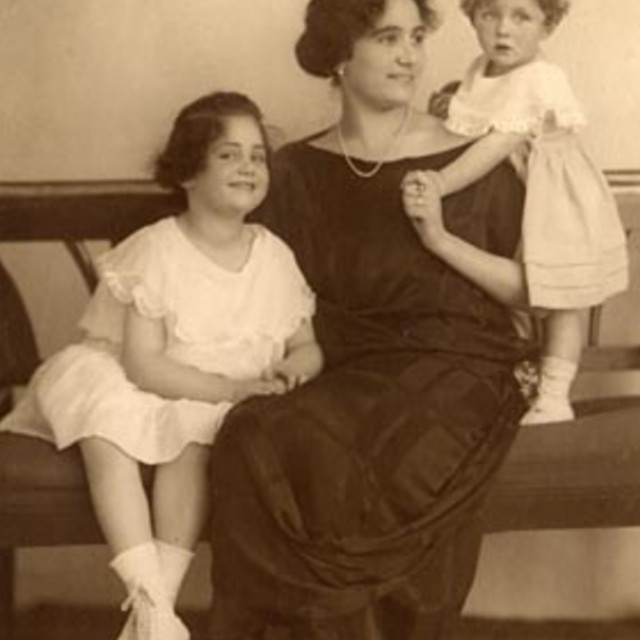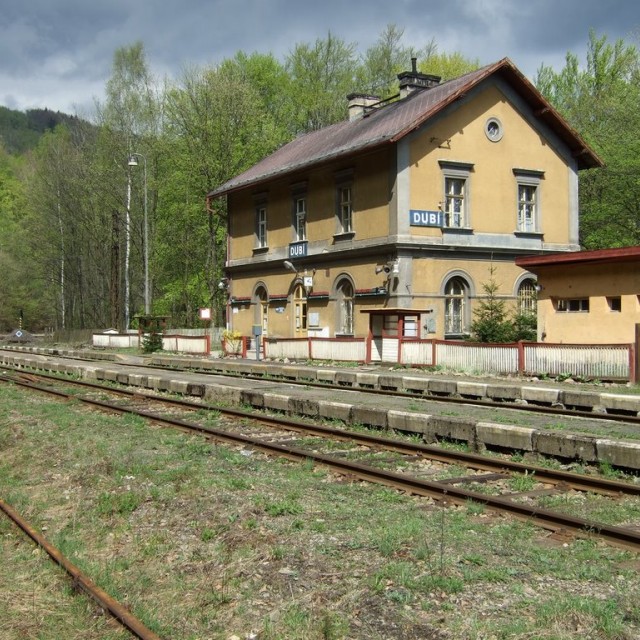Who would have hid us in such a state
In April 1945 Marieta Šmolková and her sister Hana boarded a transport to the concentration camp in Oederan. They had no idea where they were headed, nor how close they would soon be to their home in Dubí. “They loaded us into cattle wagons, we each got a soup bowl and a slice of bread. There were two hundred of us standing in the wagon and we took turns in sitting. We gave up some of the bowls so that we would at least have somewhere to pee.” The female prisoners began their endless journey stopping and starting from station to station, with the train waiting several hours in one place before lurching onward again. In one such pause, Marieta and her sister recognised the train station they had stopped at as that of their native Dubí near Teplice. “We considered trying to escape, seeing as we knew the place. But we were bald as they had shaved off all our hair in Auschwitz. We had Auschwitz clothes with a stripe on our backs showing that we were prisoners. The station is two kilometres away from the village, so we decided to stay put in the end. Who would’ve hid us in such a state.” It was a hard decision for the sisters. In the end, they were unloaded from the train in Litoměřice. From there they went by foot to (the concentration camp in) Terezín.
Hodnocení
Hodnotilo 0 lidí
Routes
Not a part of any route.
Comments
No comments yet.



